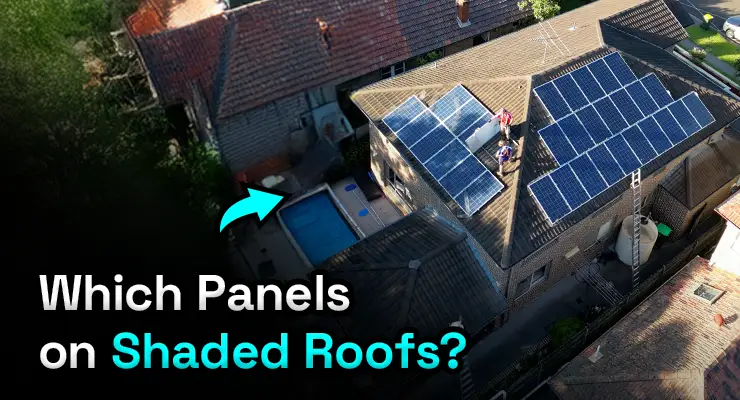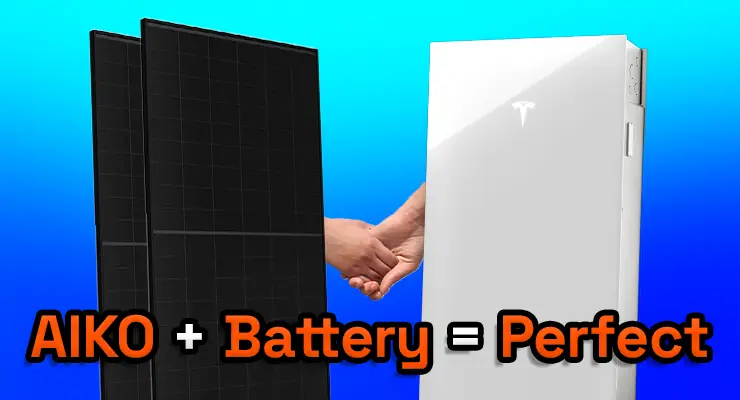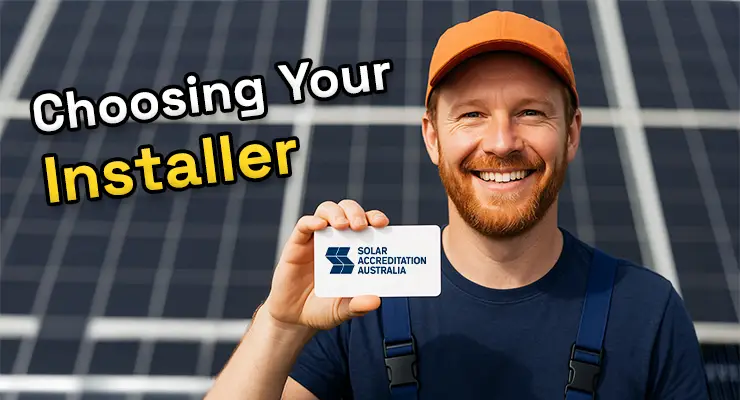Fast read
The cost of installing a solar system depends on several factors. The components you choose are one of the most important considerations. Higher-rated panels and inverters will generate more energy at a higher efficiency and last longer but at a higher initial cost.
Cost may also be influenced by the type of roof you have, as different materials necessitate different installation methods. The installer is another factor to consider.
We recommend local family-owned installers, as it will be easier for them to conduct the all-important after-sales service in years to come. Choosing a reputable installation company that charges a fair price but is not necessarily the cheapest is critical.
Can different factors affect the solar panel system cost quoted to me?
Since sun irradiation is quite intense in Australia and New Zealand and solar energy is so abundant in Australia, more and more homeowners realise that there is an untapped potential for significant savings thanks to the sun. One critical question that many home and business owners ask is how much a solar panel and battery system costs.
Several factors must be considered for a solar system installation, which means several factors affect the cost.
Solar panel costs
The most obvious factor that affects the cost of a solar panel system is the components you choose to go with. Higher quality panels and inverters will generally have higher efficiency, produce more energy, be more reliable and have a longer life than lower quality and cheaper products. So while a cheap panel and inverter might look to the untrained eye like a better product, quality gear will save you more money in the long term and create more clean energy but will have a higher upfront cost.
For example, brands like SunPower, Qcells and REC, considered premium quality panel brands, have a reputation for more robust warranty support and higher efficiency depending on the actual model.
Also, in the Chinese-made panel space, there is a differentiation between the prominent five manufacturers, such as Trina or Jinko, and the less well-known players who usually try to win customers over on cost.
Inverters also have different features and prices depending on your chosen brand and model. These two components and the balance of the system (all other parts like rails, cables, and fuses) will significantly influence the solar panel system cost.
Adding a solar battery
If you add a battery, this will, of course, add to the system’s benefits, but also the price. The size of the battery, location required cable run and brand will all create price variations.
Some examples of how cheap solar systems get their price lower are using less qualified installation staff, installing fewer clamps to screw down the rails or using thinner cables to connect the approach to the solar inverter.
While the ordinary customer could not tell these differences, the longevity of the PV system is threatened by some of these budget measures. When a cheap solar system company cuts corners, the end customer will make less money.

Roof type and pitch
Positioning the panels correctly during a residential solar system installation is crucial for maximising sunlight exposure.
This is not a problem for most Australian homes with 20 to 25 degrees pitched roofs. However, when you have a flat or skillion-style roof, the panels will need to be tilted off the roof to improve the angle to the sun for increased generation, plus enable rainwater to run off the panels.
For this roof type, the installer must include mounting systems or A-frames to ensure proper panel tilting, leading to an increased solar panel system cost.
Steeper-pitched roofs above 30 degrees will likely incur additional costs because of the difficulty of working on the roof surface. In this case, the installer may need to include the price of a cherry picker or similar to enable the installers to safely access and work on the roof.
Switchboard upgrades
With a proper site inspection, the installer can ascertain if the existing switchboard meets the appropriate standards or needs an upgrade to handle the solar system safely.
Unfortunately, the switchboard may not meet modern safety standards for isolation and protection devices for many older homes and may, in some cases, contain asbestos. If this is the case, there will be additional costs for upgrading or replacing the switchboard completely to meet current safety standards. Such a cost could add $1000 or more to the overall cost.
Choice of installer
The next factor that affects the solar panel system cost is the installer. In solar, while enormous countrywide, marketing-heavy and price-focused companies tend to charge lower costs for the solar PV system than smaller local and family-owned companies, the skill level of their get-in-and-out fast crews often leaves something to desire.
However, don’t take that information out of context because a small unknown company that no one has ever heard of and quickly comes into town for a bulk offer can also leave you with a shonky installation job that costs you thousands in the future to keep going.
Therefore, you should choose someone in the middle, a company known in your local area as a reliable installation company that also provides a cost that offers value. If the payback of your solar power system is calculated at between 4 and 5 years, and then you get a decade or even two decades of annual savings, then that’s, in our opinion, a good deal.

Federal rebates & tax incentives affect the cost of solar panels
If a professional install your system adhering to all Australian Standards and uses approved products like panels, inverters, batteries, etc., most residential solar systems should qualify for government incentives and/or rebates.
In most cases, these incentives will help to reduce the cost of the solar panel system as a whole. Nevertheless, these incentives depend on location and the size of your system. You can try our rebate calculator to determine the solar rebate you might qualify for.
As you can see, many variables affect the solar system cost quoted to you, and the above are not all of them.



